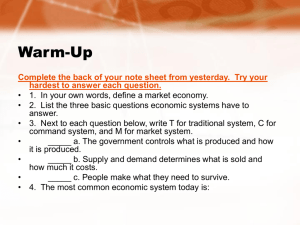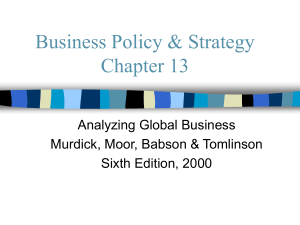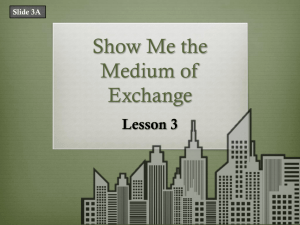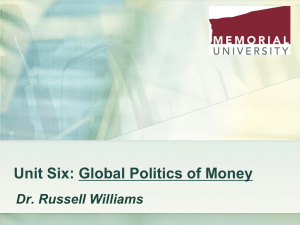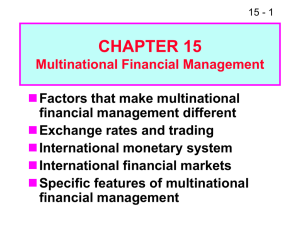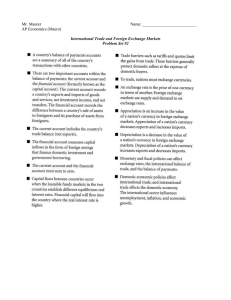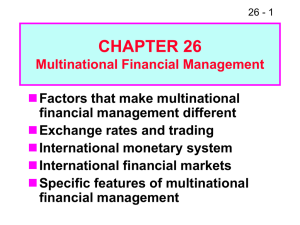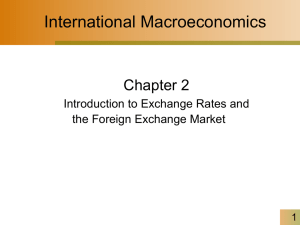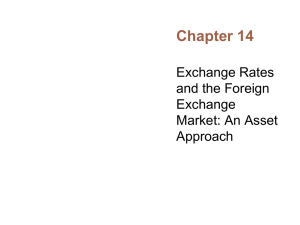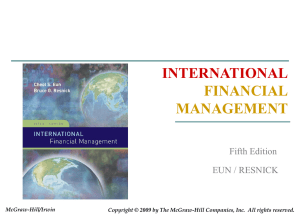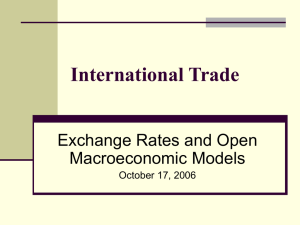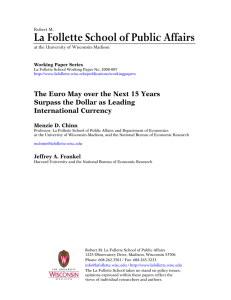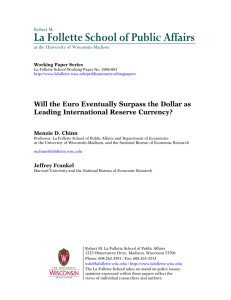Home Economics - Green Economist
advertisement
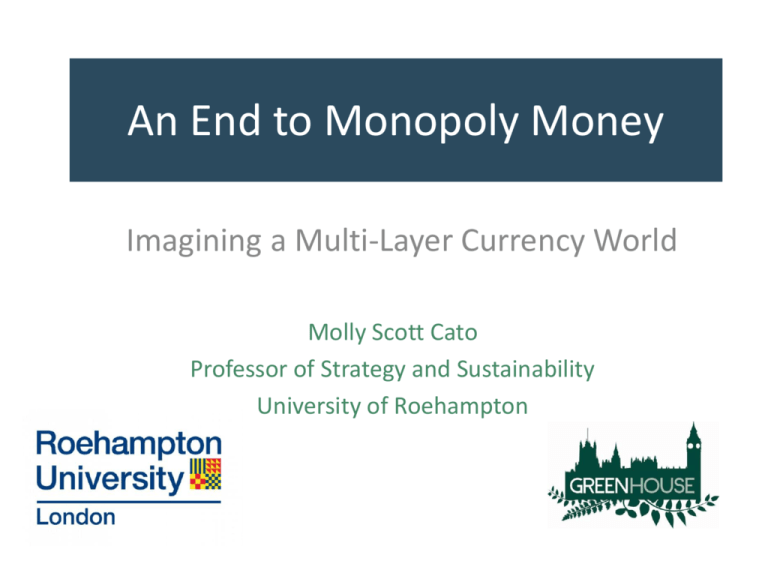
An End to Monopoly Money Imagining a Multi-Layer Currency World Molly Scott Cato Professor of Strategy and Sustainability University of Roehampton Only a crisis—actual or perceived—produces real change. When that crisis occurs, the actions that are taken depend on the ideas that are lying around. That, I believe, is our basic function: to develop alternatives to existing policies, to keep them alive and available until the politically impossible becomes the politically inevitable. Milton Friedman Euro as a Political Project • Compare Polanyi’s critique of the gold standard • For countries who control their national curencies the decision not to pay is a political one No Action on UK banks • Project Merlin: targets missed • Funding for Lending: risk transfers to taxpayer • We hold controlling stakes in two banks • Why £1bn. From taxpayers?—for highrisk securitised loans? What Really Happened? What Really Happened The Background to Calamity • Banks had resisted separation of retail from merchant banking • Abolition of exchange controls in 1979: when Thatcher came to power you could only take £500 out of the country at one time • Big Bang in 1986 What Mervyn King Said . . . • ‘Of all the many ways of organising banking, the worst is the one we have today.’ ‘Unemployment is up, businesses have closed, and the direct and indirect costs to the taxpayer have resulted in fiscal deficits in several countries of over 10% of GDP – the largest peacetime deficits ever.’ Our Next Bank Governor? Has called for the gilts held inside the Bank of England as a result of the quantitative easing programme to be cancelled. Chairman of the Financial Services Authority during the crisis Strong supporter of Britain’s membership of the Euro Local Money • Complementary or Alternative currencies? • Not a new idea • Can be designed to meet local need • Counter-cyclical • Struggle to compete with dominant global currencies US Depression Era Scrip Issue • Up to $1bn worth of these local currencies • In 1933 up to 1 million people involved • ‘it is clear that some sort of scrip was issued by several hundred municipalities, business associations, companies, banking organizations, barter and self-help cooperatives, and production units of the unemployed’ Loren Gatch Bristol Pound • • • • • Heavy involvement with local council Partnership with credit union Good support from businesses Powerful media coverage Can it compete with the pound sterling? Greek TEM • TEM: an acronym from the initials of the Greek phrase 'local alternative unit') • Circulates widely in the Greek town of Volos • Run entirely electronically Loss of Currency Sovereignty • Euro required abnegation of this power • Many countries have abdicated in favour of private banks • The power of seignorage • The ability to eradicate debts, viz. recent IMF report on the Chicago Plan A Solution for Greece • The Greek state should reclaim the power to make money • The Greek government would initiate a new currency for the purposes of running its national economy • Greece could issue the currency to pay the salaries of public-sector workers, and accept the same for payment of taxes Euro as Common Currency not Single Currency • Greeks would still be able to spend Euros, and the tourism industry, for example, might continue to accept them • Traders would prefer to have Euros • Euros would limit imports and exports but the national economy could function on its own currency And a Global Currency? Bretton Woods Conference Negotiations during the first three weeks of July 1944 Dominated by the US and UK negotiations: Harry Dexter White and John Maynard Keynes Bretton Woods Dollar domination Domination Dollar The Conference established the World Bank, set the Gold Standard at $35,000 an ounce and chose the American Dollar as the backbone of international exchange. •Keynes had argued for a neutral global currency: the Ebcu •The domination of the dollar has resulted from its role as a global reserve currency •Its abandonment of this power should be made the condition for its imminent default Find out more www.greeneconomist.org gaianeconomics.blogspot.com www.greenhousethinktank.org Green Economics (Earthscan, 2009) Environment and Economy (Routledge, 2011) The Bioregional Economy (Earthscan, 2012)

